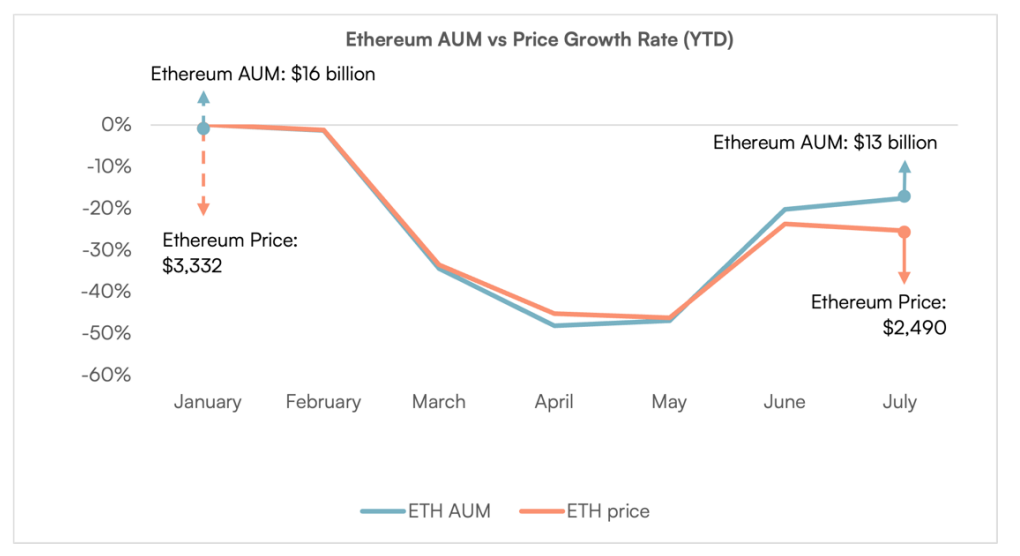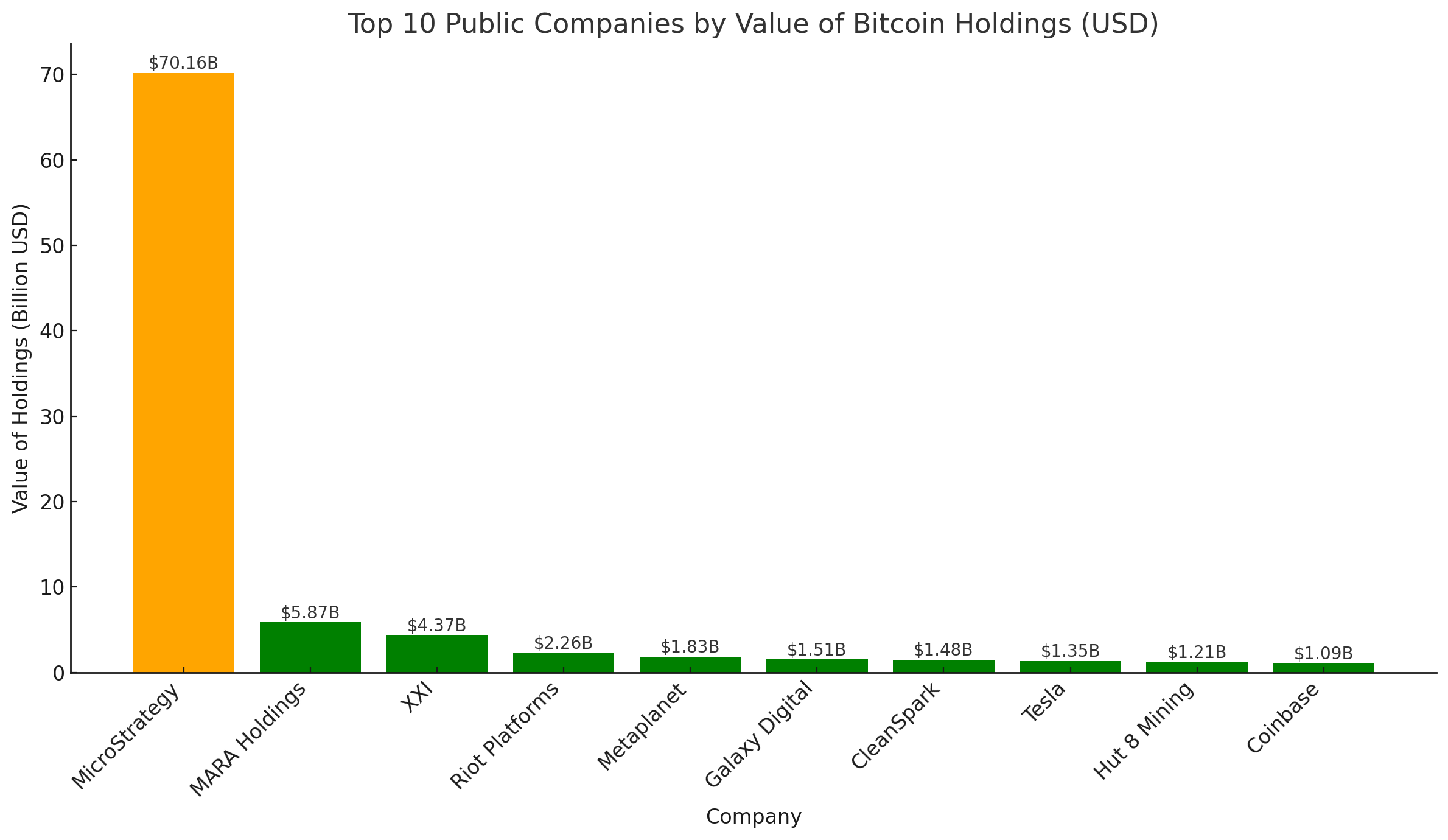A
lot
of
people
are
saying,
people
inside
CoinDesk,
that
nobody’s
going
to
read
anything
on
Wednesday
that
isn’t
elections-related.
Well
maybe
they
don’t
know
about
all
the
INCREDIBLE
CONTENT
we
have
assembled
in
this
week’s
The
Protocol
newsletter?
There’s
even
an
ongoing
election
to
keep
you
entertained.
FEATURING:
-
U.S.
election
coverage
roundup:
Trump
wins,
Gensler
loses,
bitcoin
jumps. -
It’s
make-or-break
for
Maker’s
‘Sky’
rebrand. -
Ethereum
Foundation
researchers
renounce
paid
EigenLayer
gigs. -
Trump
family-backed
crypto
project
World
Liberty
Financial
cuts
fundraising
target
by
90%. -
Hullabaloo
over
token
listing
fees. -
Crypto
commercials
evolve
past
“total
cringe.” -
$75
million
of
blockchain
project
fundraisings. -
Top
picks
from
the
past
week’s
Protocol
Village
column:
Pundi
AI,
MultiversX,
Privado
ID,
River,
Llama,
Towns,
SheFi.
Network
news
U.S.
ELECTION
COVERAGE
HIGHLIGHTS:
POLLS
STILL
OPEN:
In
another
vote
taking
place,
not
due
to
close
for
several
more
hours,
community
members
of
the
DeFi
project
MakerDAO
are
expressing
their
opinions
on
what
to
do
with
the
Sky
brand.
As
reported
in
The
Protocol
last
month,
the
project
formerly
known
as
Maker
rebranded
to
Sky
in
August,
but
the
move
received
a
lukewarm
reception,
and
now
holders
of
the
MKR
tokens
are
being
asked
to
weigh
in
on
whether
a
de-rebranding
should
be
considered.
As
reported
by
CoinDesk’s
Sam
Reynolds,
the
poll
is
not
binding.
Early
participation
was
quite
limited.
MEA
CULPA,
TABULA
RASA:
Ethereum
Foundation
researchers
Dankrad
Feist
and
Justin
Drake
have
resigned
from
their
advisory
roles
at
EigenLayer,
months
after
a
controversy
erupted
over
potential
conflicts
of
interest
within
the
Ethereum
community.
In
the
spring,
Drake
and
Feist
publicly
confirmed
that
they
had
each
accepted
advisory
roles
with
EigenLayer.
Each
researcher
was
allotted
a
significant
sum
of
EIGEN
tokens
in
exchange
for
helping
guide
the
upcoming
project
and
its
roadmap.
“While
I
believe
that
the
role
was
negotiated
in
good
faith
and
with
the
aim
of
making
sure
that
EigenLayer
is
well
aligned
with
Ethereum,”
Feist
said
in
an
X
post,
“I
understand
that
the
perception
of
this
relationship
has
been
different
and
that
for
many
the
conflict
of
interest
this
creates
is
difficult
to
reconcile
with
my
role
as
an
Ethereum
researcher.”
TRUE
CONCESSION:
It
turns
out
that
making
money
in
crypto
isn’t
quite
as
easy
as
it
might
seem:
Crypto
buyers,
burned
so
many
times
over
the
years,
are
quite
leery
of
newcomers
—
and
skeptical
when
it
comes
to
examining
new
token
offerings.
That
appears
to
be
the
case
for
World
Liberty
Financial,
the
crypto
project
backed
by
former
President
and
now
President-Elect
Donald
Trump
and
his
sons,
Don
Jr.
and
Eric.
As
detailed
in
The
Protocol
last
month,
project
officials
initially
talked
up
their
big
plans,
with
a
fundraising
goal
of
$300
million,
and
released
a
“Gold
Paper”
with
lots
of
fine
print,
including
the
revelation
that
the
initial
$30
million
of
“net
protocol
revenues”
would
be
set
aside
to
cover
expenses,
indemnities
and
obligations.
The
rest
would
go
to
a
company
called
“DT
Marks
DEFI
LLC,”
whose
owners
and
principals
include
Donald
Trump.
But
sales
of
the
tokens
never
passed
$15
million.
As
scooped
last
week
by
CoinDesk’s
Danny
Nelson,
the
project
now
has
made
a
filing
with
the
U.S.
Securities
and
Exchange
Commission
saying
that
the
sales
will
be
terminated
as
soon
as
the
$30
million
target
is
reached.
The
concession
to
market
realities
could
put
an
end
to
the
bizarre
effort,
which
left
many
analysts
scratching
their
heads
at
how
Trump
had
time
to
promote
a
crypto
project
while
in
the
throes
of
an
intense
campaign
for
president.
Coinbase
CEO
Brian
Armstrong‘s
claim
in
a
post
on
X
that
listings
on
the
U.S.
crypto
exchange
are
“free”
drew
protests
from
project
leaders
including
Sonic
Labs’
Andre
Cronje
and
Tron’s
Justin
Sun.
Bitget,
a
rival
crypto
exchange,
took
advantage
of
the
topic’s
salience
to
open
a
new
listing
application
portal
on
its
platform,
stating
that
it’s
“transparent
about
its
listing
procedures
and
thrives
to
provide
token
projects
with
the
ease
of
exposure
at
best
possible
initial
investments
for
its
community,”
along
with
the
following
testament:
“Importantly,
Bitget
strongly
emphasizes
that
it
does
not
charge
any
fees
related
to
the
listing
application
process,
such
as
commission
fees,
brokerage
fees,
application
fees
or
assessment
fees.
Tokens
provided
by
project
teams
will
be
fully
allocated
to
Bitget
users
based
on
the
agreed-upon
marketing
and
promotional
plan.”
SPICY
SPOTS:
Crypto
commercials
have
come
a
long
way
since
Crypto.com‘s
notoriously
cringe-y
“Fortune
Favors
the
Brave”
ad
starring
Matt
Damon.
A
couple
videos
circulating
this
week
actually
approached
the
not-inconsiderable
triple-achievement
of
“surprisingly
clever”
and
“refreshingly
dark”
while
remaining
“uncannily
crypto-native.”
-
And
here
was
one
promoting
the
Polygon
Labs-sponsored
AggLayer,
comparing
various
blockchain
ecosystems
to
a
series
of
dysfunctional
couples
undergoing
therapy.
Is
Optimism’s
‘Superchain’
Winning
the
Ethereum
Layer-2
Race?
Optimism
Foundation
Chief
Growth
Officer
Ryan
Wyatt
(Optimism
Foundation)
One
of
the
biggest
trends
of
2023
among
the
leading
layer-2
projects
on
Ethereum
was
the
emergence
of
“blockchain
in
a
box,”
where
the
teams
encouraged
developers
to
clone
their
code
to
spin
up
new
layer
2s.
Now,
one
project
in
particular
appears
to
be
pulling
away
as
the
clear
leader.
And
as
is
often
the
case
in
blockchain
development,
a
crucial
factor
is
the
money
changing
hands
behind
the
scenes.
Optimism,
one
of
the
major
layer-2
networks,
has
managed
to
get
a
slew
of
clients
and
firms
to
deploy
their
own
blockchains
using
Optimism’s
technology,
with
the
OP
Stack,
under
open-source
software
licenses.
It’s
a
crucial
development
in
the
evolution
of
the
broader
blockchain
universe,
since
layer-2
networks
stand
at
the
heart
of
developers’
efforts
to
make
transactions
faster
and
cheaper
in
the
Ethereum
ecosystem.
Part
of
the
Optimism
Foundation’s
strategy
to
get
new
networks
to
use
their
technology
is
to
give
out
large
sums
of
OP
tokens
in
the
form
of
grants.
Ultimately,
the
goal
is
to
reach
critical
mass
—
perhaps
not
unlike
the
ascendance
in
the
1980s
of
VHS
over
Betamax
as
the
dominant
videotape
technology.
Money
Center
Fundraisings
Hubert
Rachwalski
von
Rejchwald,
founder
and
CEO
of
vlayer
Labs
(vlayer
Labs)
-
Vlayer,
a
data-infrastructure
project
relying
on
zero-knowledge
proofs,
with
privacy
and
verification
tools,
has
secured
$10
million
in
funding
from
a16z
crypto
CSX,
Credo
Ventures
and
Blocktower
VC,
along
with
builders
from
Aztec
Protocol,
Worldcoin,
Eleven
Labs.
According
to
the
team:
“Open
Alpha
Launch
is
coming
in
days,
just
nine
months
driven
by
a
team
of
over
20
experts
across
the
U.S.,
U.K.
and
Poland.
Vlayer
extends
Ethereum’s
functionality
with
four
new
Solidity
functions.
It
provides
smart
contracts
with
access
to
on-
and
off-chain
data
through
features
such
as
Time
Travel,
Teleport,
Web
Proofs
(zkTLS)
and
email
proofs
(zkEmail).” -
Others
(Details
in
Protocol
Village
column):
Ellipsis
($21M),
Glow
($30M),
Spire
Labs
($7M),
Phylax
Systems
($4.5M),
Axal
($2.5M).
Deals
and
grants
Bea
O’Carroll
(Kadena)
-
Kadena,
a
layer-1
proof-of-work
blockchain,
has
appointed
Beatrice
O’Carroll
as
a
strategic
advisor.
According
to
the
team:
“With
over
20
years
of
experience
in
financial
services
and
crypto
markets,
including
roles
at
Citibank,
Deutsche
Bank
and
Circle,
O’Carroll
will
support
Kadena’s
growth
in
digital
assets
and
decentralized
finance.
Her
appointment
aligns
with
Kadena’s
initiatives
to
expand
its
presence
in
institutional
markets,
develop
new
products,
and
strengthen
its
team. -
TON
Accelerator
and
Mantle
are
launching
a
$5
million
cross-chain
initiative
to
drive
innovation
across
TON
and
EVM
ecosystems.
Data
and
Tokens
Memecoin
Share
of
Altcoin
Market
Doubles
to
11%
Amid
Backlash
Against
‘Low
Float,
High
FDV’
:format(jpg)/cloudfront-us-east-1.images.arcpublishing.com/coindesk/HIX2NY2FJBEVRKFDRGLT4KA5OE.png)
We
were
forwarded
a
copy
of
Binance
Research’s
just-out
report,
“Understanding
the
Rise
of
Memecoins”
and
found
it
curiously
intellectual
—
tracing
the
rise
of
the
asset
class
through
an
economic
prism,
noting
that
“financial
nihilism
might
be
growing
particularly
among
younger
generations.”
The
report
suggests
that
memecoins’
combined
share
of
the
altcoin
market
has
doubled
from
2023
levels
to
about
11%
currently.
(See
chart
above.)
There
was
also
this
high-minded
takeaway,
flicking
at
an
increasingly
common
refrain
heard,
a
backlash
against
the
idea
of
venture
capital-backed
projects
using
retail
investors
as
exit
liquidity:
“Projects
have
turned
towards
private
VC
funding
rounds
in
order
to
raise
capital.
This
practice
has
grown
significantly
in
recent
years,
leading
to
an
industry
wide
‘Low
Float,
High
FDV,’”
the
report
reads.
“A
symptom
of
this
problem
is
that
many
of
the
new
altcoins
with
the
most
exciting
narratives
and
visions
now
face
significant
supply
unlocks
in
the
coming
years,
effectively
turning
retail
traders
into
potential
exit
liquidity
for
VCs
that
got
into
early
stage
private
rounds.
This
tokenomics
problem
created
by
the
prominence
of
private
token
sale
rounds
is
likely
one
of
the
factors
at
the
forefront
of
the
market’s
shift
towards
the
fair
launch,
transparent
memecoins.”
Ranking
Node-as-a-Service
Providers
Top
16
providers
of
native
staking,
as
ranked
on
assets-under-management
by
the
website
Staking
Rewards
(Staking
Rewards)
Earlier
this
week
I
had
a
fascinating
conversation
with
Pablo
Larguia,
co-founder
and
CEO
of
Buenos
Aires-based
SenseiNode,
a
provider
of
institutional
grade
staking-as-a-service
—
essentially
operating
blockchain
nodes
on
behalf
of
big
investors.
The
fast-growing
business
involves
taking
non-custodial
token
allocations
and
then
managing
the
mostly
data-center-oriented
business
of
running
nodes
and
staking
on
behalf
of
third
parties.
This
activity
appears
to
fall
somewhere
between
the
proof-of-stake
equivalent
of
bitcoin
mining
and
the
21st
century
version
of
a
bond
manager.
Larguia
showed
us
how
to
find
the
industry-standard
rankings
for
this
cottage
industry
within
the
blockchain
space.
It
involves
first
going
to
the
tracking
website
Staking
Rewards
and
then
filtering
for
“native
staking.”
P2P.org
is
tops
with
$6.12
billion
of
assets
under
management,
followed
by
Kiln
at
No.
2
with
$4.91
billion,
then
Allnodes
with
$3.89
billion
and
stakefish
with
$2.6
billion.
SenseiNode
is
No.
14
at
$859.6
million,
for
what
it’s
worth.
Protocol
Village
Top
picks
of
the
past
week
from
our
Protocol
Village
column,
highlighting
key
blockchain
tech
upgrades
and
news.
Screengrab
from
Pundi
AI
Data
demo
video.
This
is
an
example
of
“bounding
box
annotation”
where
the
user
takes
a
“scenic
image
containing
wild
animals”
and
draws
a
box
around
them
(Pundi
AI)
-
PROTOCOL
VILLAGE
EXCLUSIVE:
Pundi
AI,
a
decentralized
AI
training
platform,
has
launched
the
testnet
of
its
decentralized
data
annotation
platform,
Pundi
AI
Data,
to
democratize
global
AI
data
collaboration.
According
to
the
team:
“Leveraging
blockchain,
the
platform
allows
individuals
and
organizations
to
contribute,
verify,
and
curate
diverse,
unbiased
datasets.
Users
can
earn
through
a
‘Tag
to
Earn’
model
by
annotating
data
for
AI
training,
while
blockchain-backed
transparency
ensures
data
integrity
and
trust.
This
testnet
launch
furthers
Pundi
AI’s
mission
of
equitable
AI
development,
enabling
a
secure,
open
and
decentralized
ecosystem
for
AI
data
and
innovation.” -
MultiversX,
a
leading
layer-1
blockchain
for
next-gen
applications,
reports
that
a
tech
enthusiast
set
up
a
MultiversX
testnet
node
on
a
Samsung
Galaxy
S24
Ultra,
“showing
that
blockchain
participation
could
soon
require
only
a
smartphone.”
According
to
the
team:
“Traditionally
needing
high-performance
servers,
this
experiment
suggests
blockchain
may
soon
be
accessible
on
high-end
mobile
devices,
paving
the
way
for
a
more
inclusive,
democratized
network.”
In
an
Oct.
27
post
on
X,
@MantorMBU
wrote
that,
“So
far,
the
node
is
syncing
and
operating
with
surprising
smoothness.
However,
the
real
test
will
be
in
its
sustained
performance
over
time,
especially
under
load
conditions.” -
Privado
ID
(formerly
Polygon
ID),
a
privacy-focused
digital
identity
platform,
announced
the
launch
of
a
“multi-chain,
device-agnostic
identity
attestation
protocol
that
allows
people
to
seamlessly
verify
their
credentials
across
multiple
EVM-compatible
blockchains,”
an
achievement
it
describes
as
an
“industry
first.”
Evin
McMullen,
co-founder
and
chief
strategy
officer,
said
in
a
press
release:
“This
protocol
is
the
currently
missing
middleware
infrastructure
that
mainstream
Web3
ecosystems
need
to
drive
value
continuously
from
the
infrastructure
toward
the
application
layer.” -
River,
a
protocol
for
securing
communication
for
end
users,
has
acquired
Llama,
a
protocol
for
decentralized
governance,
to
strengthen
on-chain
governance
across
its
platforms,
including
Towns,
its
largest
project,
which
launched
in
early
October.
According
to
the
team:
“This
acquisition
streamlines
governance
for
communication
platforms
with
customizable
DAO
permissions,
allowing
role-based
control
over
actions
like
protocol
upgrades,
fund
transfers
and
emergency
pauses.
Llama’s
integration
enhances
token
governance
on
River
and
adds
built-in
governance
contracts
for
current
and
future
platforms
built
on
the
protocol,
expanding
its
capabilities.” -
SheFi,
a
global
Web3
educational
community,
has
launched
its
first
mobile
wallet
app,
powered
by
Mobile
Stack‘s
decentralized
protocol.
According
to
the
team:
“This
secure,
user-friendly
wallet
provides
seamless
access
to
crypto
and
DeFi
with
built-in
educational
tools,
empowering
users
as
they
explore
Web3.
With
support
for
stablecoin
pools,
cross-chain
swaps
and
over
100
dApps,
plus
security
features
like
biometric
verification,
it’s
a
comprehensive
gateway
to
DeFi.
Available
on
Google
Play
and
the
App
Store,
it’s
accessible
to
all
who
want
to
join
the
SheFi
experience.”




:format(jpg)/cloudfront-us-east-1.images.arcpublishing.com/coindesk/RQPXYAYBZVG6HIA6MIFWCSKLKA.jpeg)
:format(jpg)/cloudfront-us-east-1.images.arcpublishing.com/coindesk/ADZTIXVSSRCU3DSSS2G5T6IWHI.jpg)
:format(jpg)/cloudfront-us-east-1.images.arcpublishing.com/coindesk/RHDGZUXX2VHCTJUQUUAWLO3FVU.jpeg)
:format(jpg)/cloudfront-us-east-1.images.arcpublishing.com/coindesk/RBMKQZMF4FB4BE2BH3OCNLMMWM.png)
:format(jpg)/cloudfront-us-east-1.images.arcpublishing.com/coindesk/HYGXG3MWWNED5KESM2ECOLGHHI.png)


